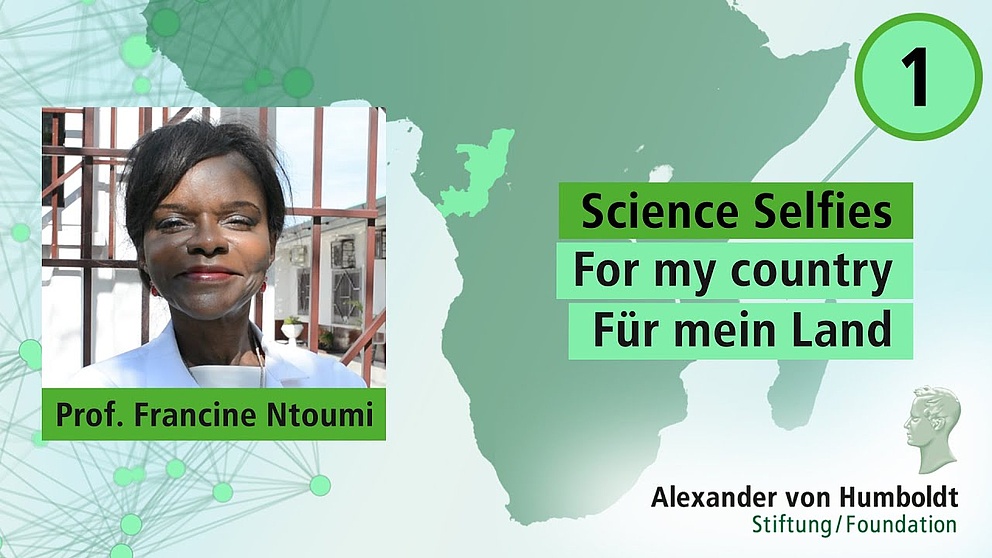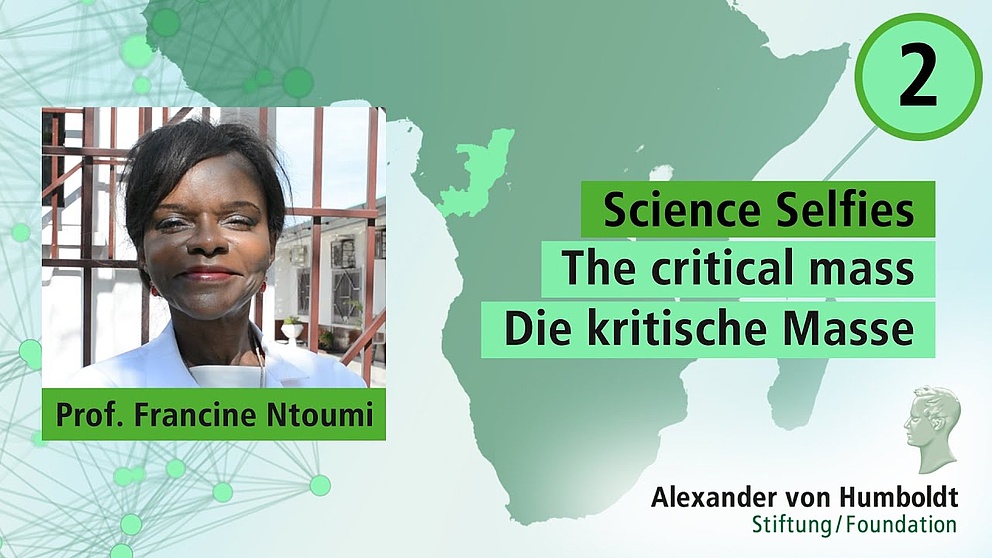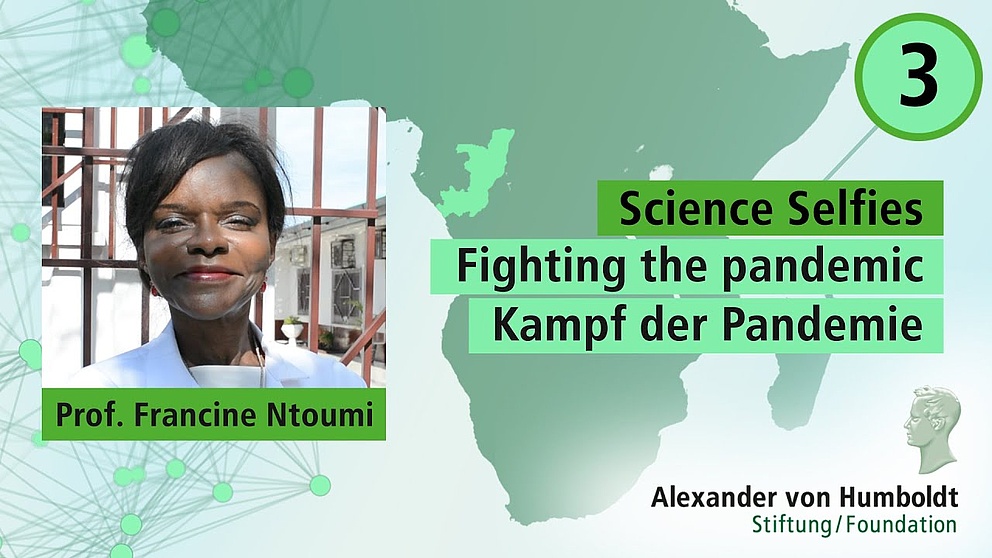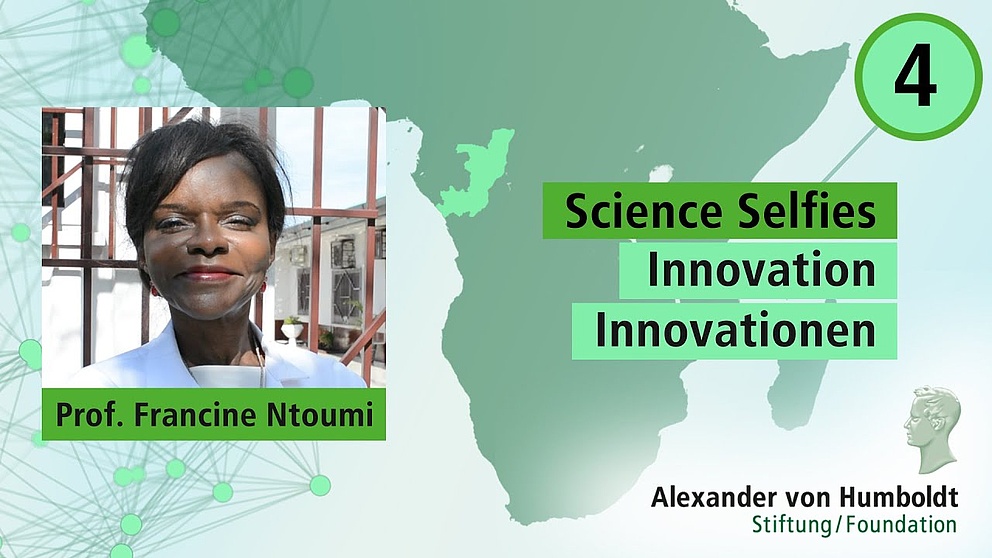
Contact
Press, Communications and Marketing
Tel.: +49 228 833-144
Fax: +49 228 833-441
presse[at]avh.de
Francine Ntoumi is known as a pioneer of infection research in Africa. For our series, Science Selfies – Research made in Africa, she and her team took documentary videos of how they are fighting the pandemic and training scientists.

Francine Ntoumi
Born a Congolese, she has conducted research in France, Gabon, the Netherlands, Germany, Tanzania and the Republic of Congo. In 2014, she was granted the Humboldt Foundation’s Georg Forster Research Award and is currently a professor at Marien N’Gouabi University in Brazzaville.
Episode 1 – For my country
She wants to give something back to her country. In the first episode in the series, Professor Francine Ntoumi explains why she returned to her home country, the Republic of Congo. An internationally acclaimed molecular biologist, she studies infectious diseases such as malaria, HIV and, currently, Covid-19. African countries are often particularly hard hit by infectious diseases. For Ntoumi it is, therefore, only logical that particularly intensive research should be undertaken precisely there.
Episode 2 – The critical mass
In the long term, it is essential for African countries to promote research on the spot and train scientists locally. Of this, Francine Ntoumi is convinced. How she puts it into practice in her own country and why national and international collaborations are so important is the subject of the second episode in the series.
Episode 3 – Fighting the pandemic
When a country is in lockdown, it has to be able to rely on its own resources. That’s why it is so important to promote research on the spot, says Professor Francine Ntoumi. The labs that she established for research into infectious diseases years ago, are now some of the few institutions in the country where covid testing can take place.
In the third part of the series you can see how, in addition to this, she and her team are supporting the fight against the pandemic.
Episode 4 – Innovations
Due to the Corona pandemic, lab equipment has become scarce. This is, above all, a challenge for scientists in developing countries. At the Centre for Infectious Diseases in the Republic of Congo, Professor Francine Ntoumi and her team have found an innovative solution to the problem. What it is and why the researchers will even be able to save lives with it in the future is revealed in the final episode of Science Selfies by Francine Ntoumi.
Video editing: Dirk Gilson
Other episodes of Science Selfies:
updated on 9 April 2021




